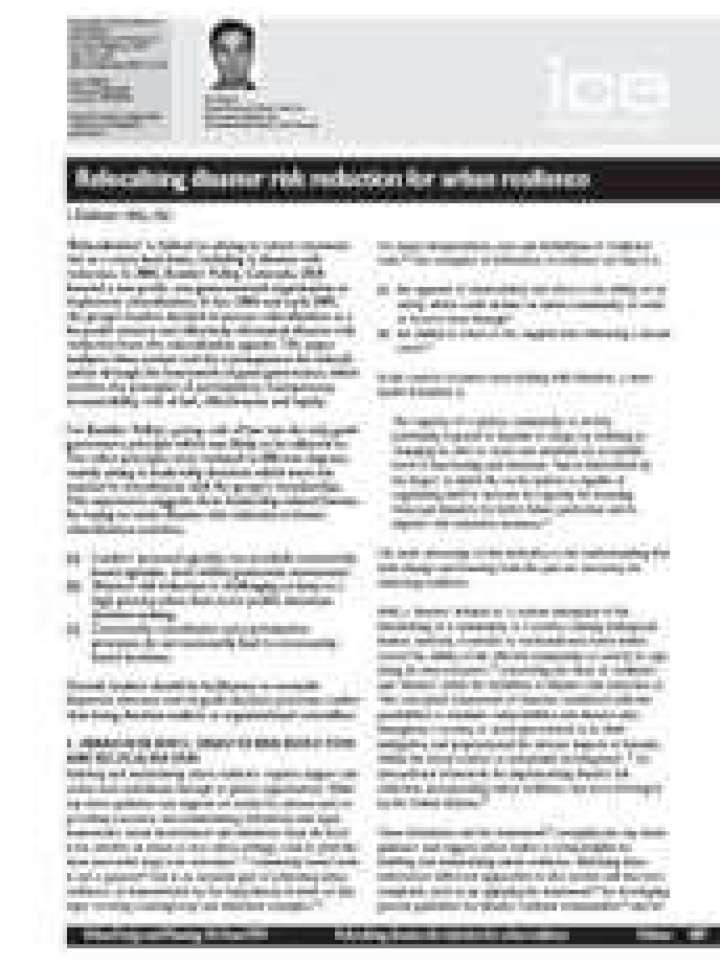Relocalising disaster risk reduction for urban resilience
‘Relocalisation’ is defined as aiming to return communities to a more local basis, including in disaster risk reduction. In 2005, Boulder Valley, Colorado, USA formed a non-profi t, non-governmental organisation to implement relocalisation. In late 2006 and early 2007, the group’s leaders decided to pursue relocalisation as a for-profi t venture and effectively eliminated disaster risk reduction from the relocalisation agenda.
This paper analyses these actions and the consequences for relocalisation through the framework of good governance, which involves the principles of participation, transparency, accountability, rule of law, effectiveness and equity.
For Boulder Valley’s group, rule of law was the only good governance principle which was likely to be adhered to. The other principles were violated to different degrees, mainly owing to leadership decisions which were not enacted in consultation with the group’s membership. This experience suggests three leadership-related lessons for trying to retain disaster risk reduction in future relocalisation activities.
(a) Leaders’ personal agendas can preclude community-based agendas, even within grassroots movements.
(b) Disaster risk reduction is challenging to keep as a high priority when short-term profits dominate decision-making.
(c) Community consultation and participation processes do not necessarily lead to community-based decisions.
Overall, leaders should be facilitators to reconcile disparate interests and to guide decision processes rather than being decision-makers or organisational controllers
Explore further
